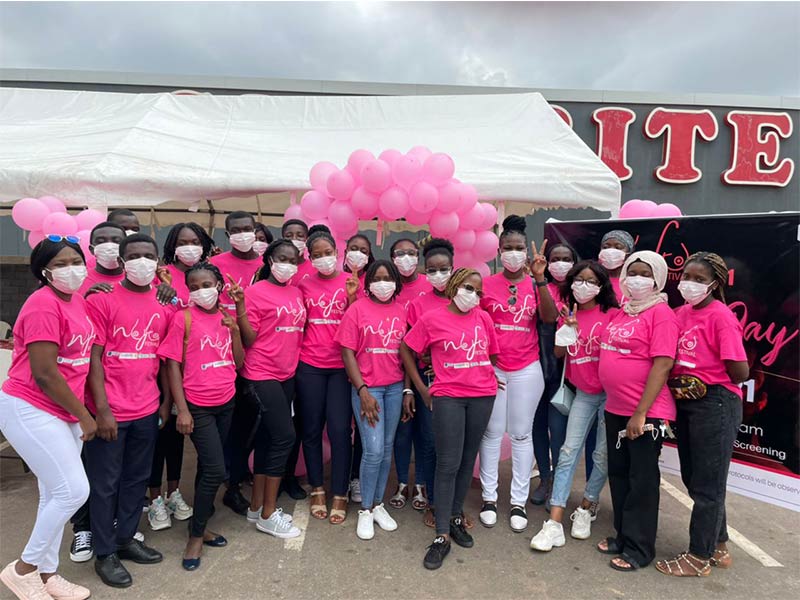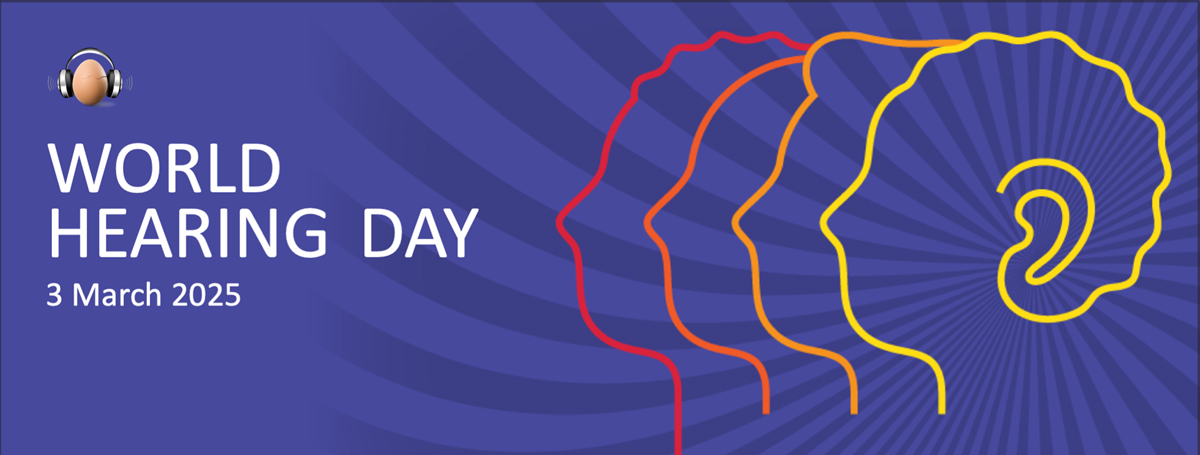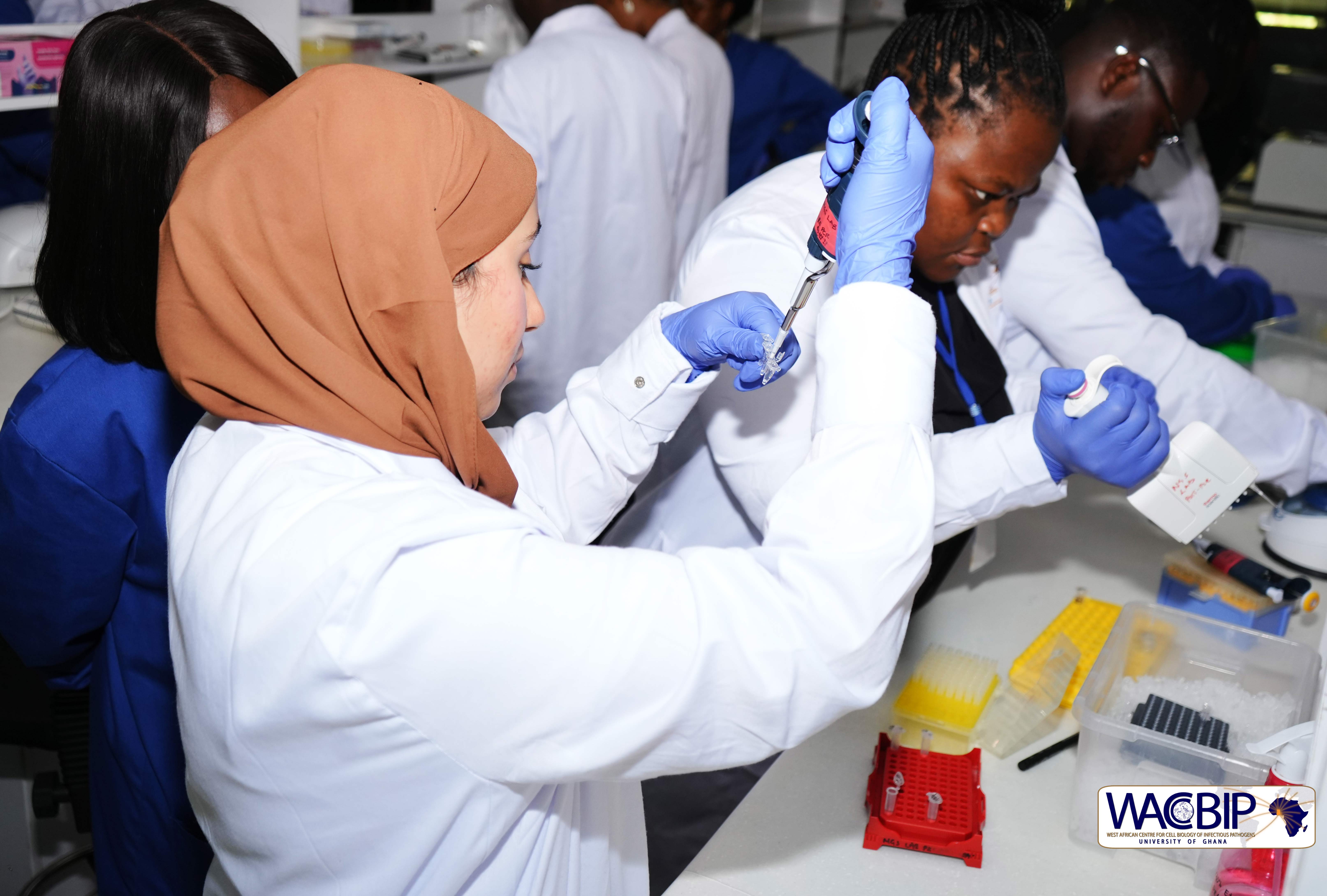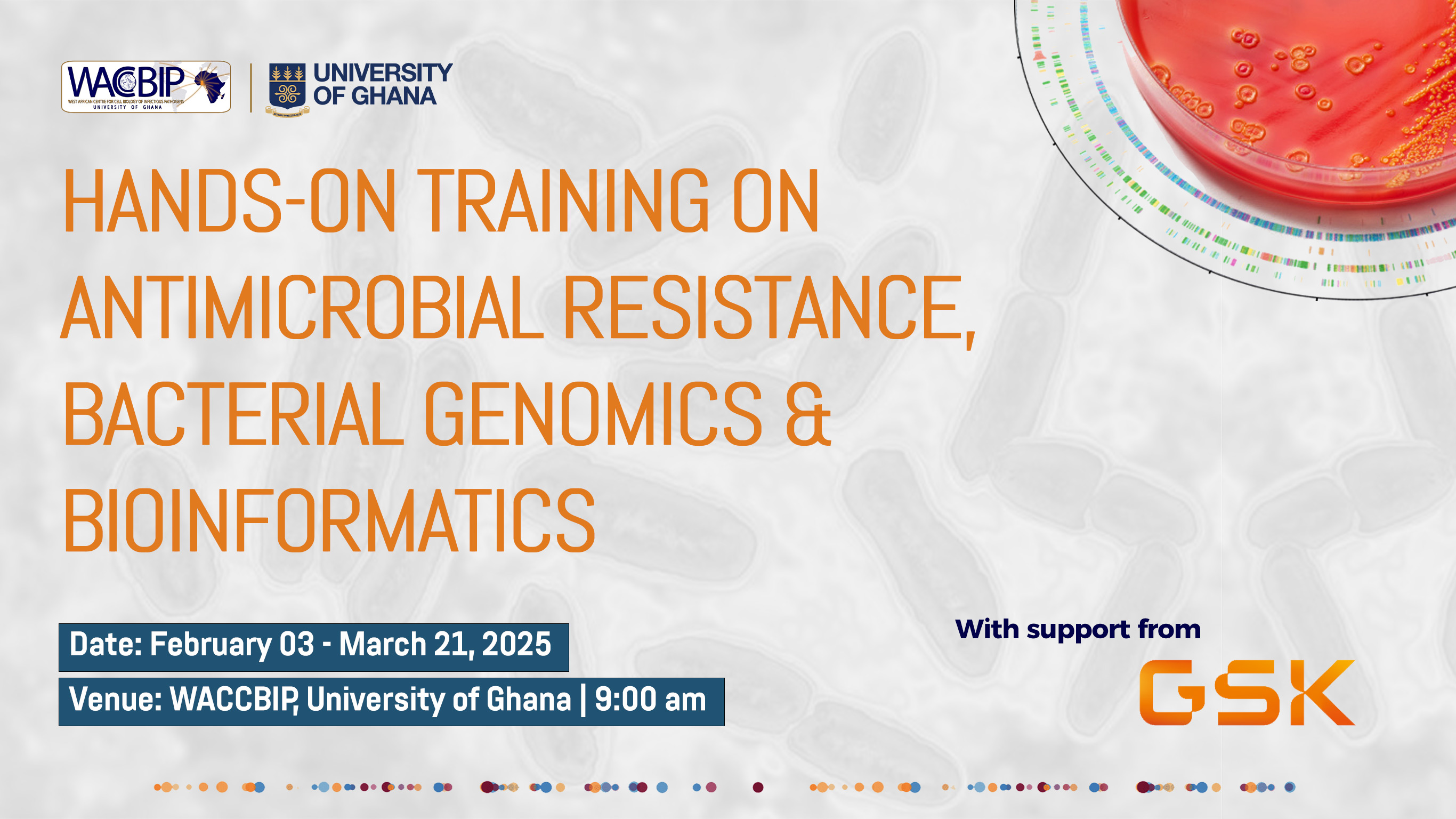The West African Centre for Cell Biology of Infectious Pathogens (WACCBIP) has held an event to climax the fourth edition of the annual Nufu Festival (NufuFest’21). NufuFest (which translates from the Twi language to mean ‘celebration of breast’ or breast Festival’) is the flagship breast cancer awareness campaign championed by Dr. Lily Paemka -Human Molecular Geneticist and lecturer at WACCBIP. The month-long festival seeks to create awareness by tackling long held beliefs and misconceptions surrounding breast cancer through various behavioural change communication approaches that encourage regular screening and self-examination. This allows for early detection and saves lives.
NufuFest’21 was characterized by sensitization and screening outreaches at the Accra-Tema lorry station on October 07, 2021, the Achimota Shopping Mall on October 13, 2021, the Accra Mall on October 15, 2021, and climaxed on October 28, 2021, at the Volta Hall car park, University of Ghana. There were also media engagement sessions where the NufuFest team had studio appearances on both television and radio to discuss breast cancer. There were also in studio media engagement sessions on radio and televion to educate the Ghanaian population on breast cancer.
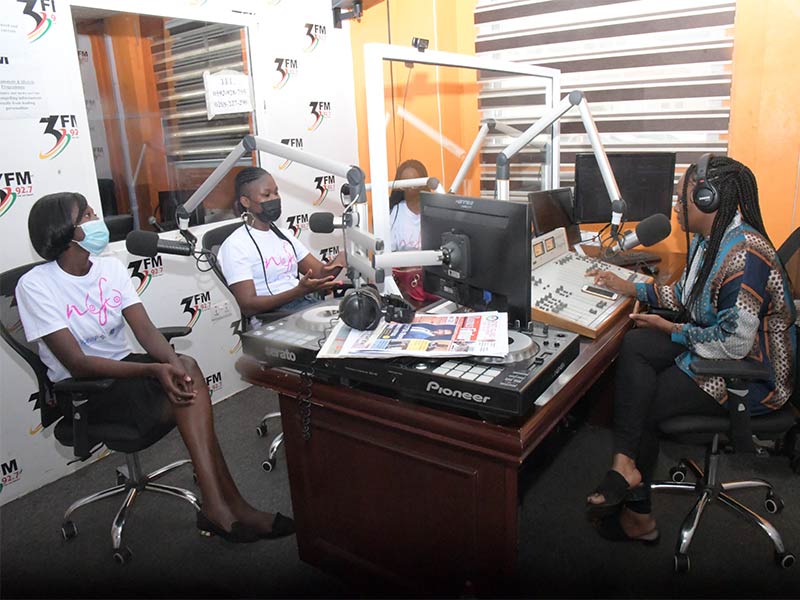
Dr. Lily Paemka explains a point on breast cancer during a media engagement session.
Patrons at these events were taken through the developmental stages of breast cancer; how to self-examine one’s breast and admonished to immediately visit a health facility should they observe any abnormalities in their breasts. Participants were also tested on their knowledge of breast cancer through various fun-packed activities including quizzes. The WACCBIP COVID-19 research team was also present at each of the locations to provide free COVID-19 screening.
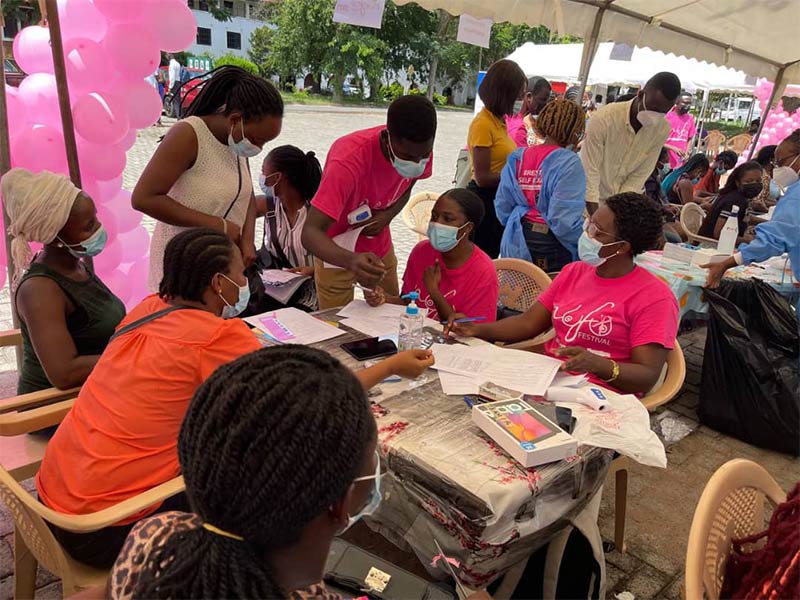
Some participants going through COVID-19 screening.
Speaking at the climax of NufuFest’21, Dr Lily Paemka explained that NufuFest has over the years adopted a non-conventional approach to breast cancer awareness creation, thereby providing a platform for scientists to engage women and men to discuss the dangers of the condition as well as its prevention and treatment. “We present a different perspective as scientists and we collaborate with health care professionals who are involved with breast cancer as well, but we bring a firm perspective to it because we understand the signs and symptoms of it. I understand what happens at the molecular level and I am able to dispel the myths and educate women for them to appreciate and take care of their breasts so that any abnormality can be detected much earlier.”
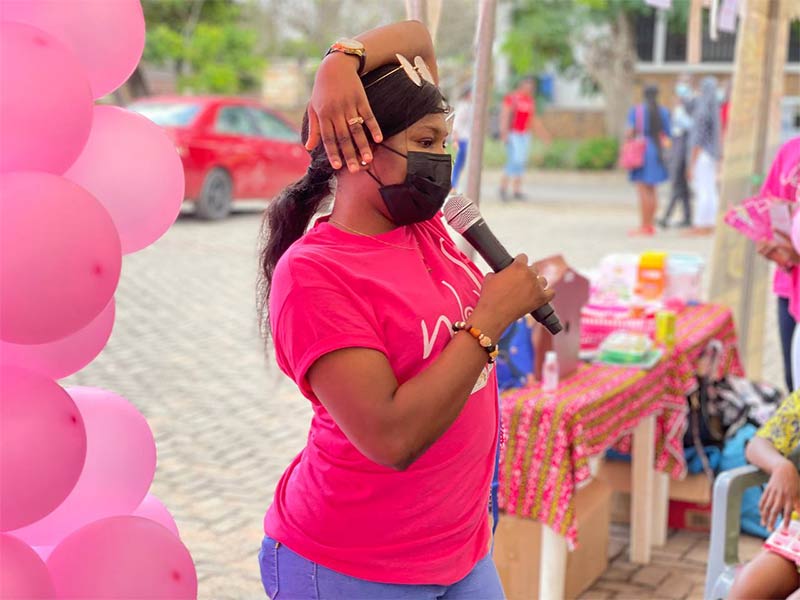
Participants taken through a demonstration on self-breast examination
Responding to a question as to whether the size of one’s breast determined the risk of getting breast cancer, Dr. Paemka explained that this has not been proven, however, finding a lump in a triple-D cup would be harder as compared to someone who wears an A cup. “Your breast size does not necessarily expose you to breast cancer even with humongous breasts. It has to do with the mass since it becomes a lot of work to feel lumps to detect an abnormality,” she said. She further explained that “there is no scientific evidence which suggests that wearing brassieres exposes one to breast cancer. Being a woman is one of the biggest risk factors, as 99% of cases are found in women and 1% in men.”
She also advised men to pay close attention to changes in the breasts of their partners. “Men should be familiar with the topology of their partner's breast because they are always squeezing it and should pay attention in checking for any changes. It should be done once every month.”
This year’s celebration was supported by the Organisation for Women in Science for the Developing World (OWSDW), YEMAACHI Biotechnology, and the Women’s Committee of FUSSAG-UG. NufuFest, has since its inception, sensitized over 5000 Ghanaian women on breas cancer.

